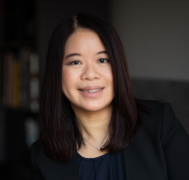It’s beyond time for a new future of aging
I will let you in on a secret. Are you ready?

With people living longer and healthier lives, many of us are working longer and in new and different ways
Here it is: we are getting older.
That’s it. That’s the secret.
“That’s absurd,” you might say.
“Of course we’re getting older. I’m counting down to retirement,” you might say.
I will be 50 this year! I’m half a century old (that’s what my daughter said about my upcoming birthday).
But do you know what one of my colleagues used to tell me?
“We all get older the minute we’re born, Theo.”
And she is right.
Remember the candle on your kid’s birthday cake for that magical year when they turned one?
Now do you remember the birthday cake the year after, with two birthday candles?
Or perhaps the third one?
And then next thing you know, it’s sweet 16. Then off to college they go.
And we lament how time flies and how we’ve become empty nesters.
Birthday presents and celebrations are scaled back. As if we become ashamed of getting older and we want to count back the years.
Instead of looking forward, we start to look backwards.
Instead of ‘years old’, we say ‘years young’.
But the truth remains. We are all getting older every year.
So why does it become a problem only when an arbitrary number — let’s say 50 — hits? And why does it get worse if you are a woman? You’re either too young (inexperienced) or you’re too old (out of touch) — just never good enough.
Why does our society place so much attention on something that is so random, something that holds different meaning for different people? When we equate youth with beauty and age with decline, where does that leave us? When we view aging as a disease that needs to be cured and label an entire cohort as vulnerable, despite the diversity in aging, no wonder we ignore the opportunities that come with simply getting older.
Take money management as an example. Whereas financial institutions and fintechs often think of aging demographics as ones who are not tech savvy, the reality cannot be further from the truth. While they might use technology differently (for example, they favour Facebook over Instagram or X), they are not scared of technology. While some of them still write cheques, many of them use PayPal and other apps to transfer money.
With people living longer and healthier lives, many of us are working longer and in new and different ways. We are also more likely to be taking care of our parents, requiring us to take frequent and extended career breaks. All of these bring forth the need for new ways of managing income, preparing for taxes, and saving for both the short term and long term. As much as we talk about the importance of the gig economy and small businesses, access to financial services remains a pipedream for some.
And we haven’t even touched on financial caregiving responsibilities and saving for kids’ college tuition, which has gone up exponentially. How does the sandwiched generation navigate these competing demands in an increasingly unpredictable future? I wonder if this is why almost half of American parents say they’d prefer that their children not enroll in a four-year college, according to a recent survey.
Are we facing a demographics crash and a crisis? Or are we presented with new opportunities for innovation, propelled by the longevity economy? Do we want to create a future where we can thrive? Or do we throw in the towel and bury our head in the sand because it is easier to ignore than act? As New York Times columnist Farhad Manjoo recently wrote: “Silicon Valley isn’t just consumed by youth; often, it’s blinded.”
Instead of asking if Americans can age gracefully, what if we flip the script and ask ourselves, how can we make best use of the time that we have gained and the technology at our disposal? Only then might we be able to view aging with a new light — along with a renewed sense of responsibility and optimism for the future.
 About the author
About the author
Theodora (Theo) Lau is the founder of Unconventional Ventures. She is the co-author of Beyond Good and co-host of One Vision, a podcast on fintech and innovation.
She is also a regular contributor for top industry events and publications, including Harvard Business Review and Nikkei Asian Review.








































